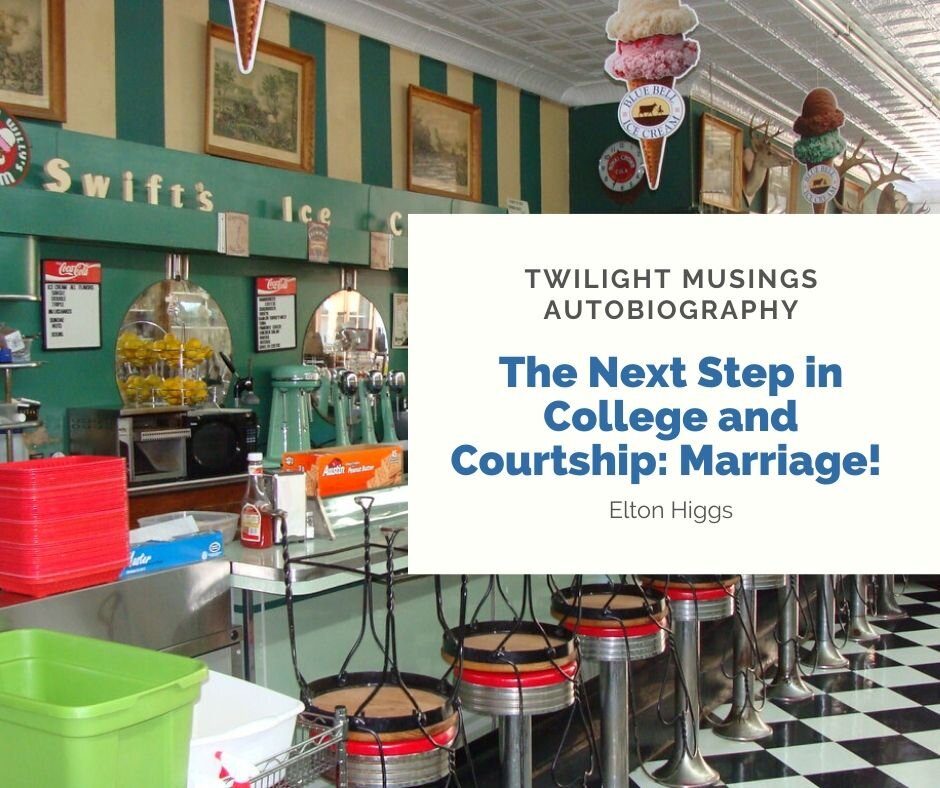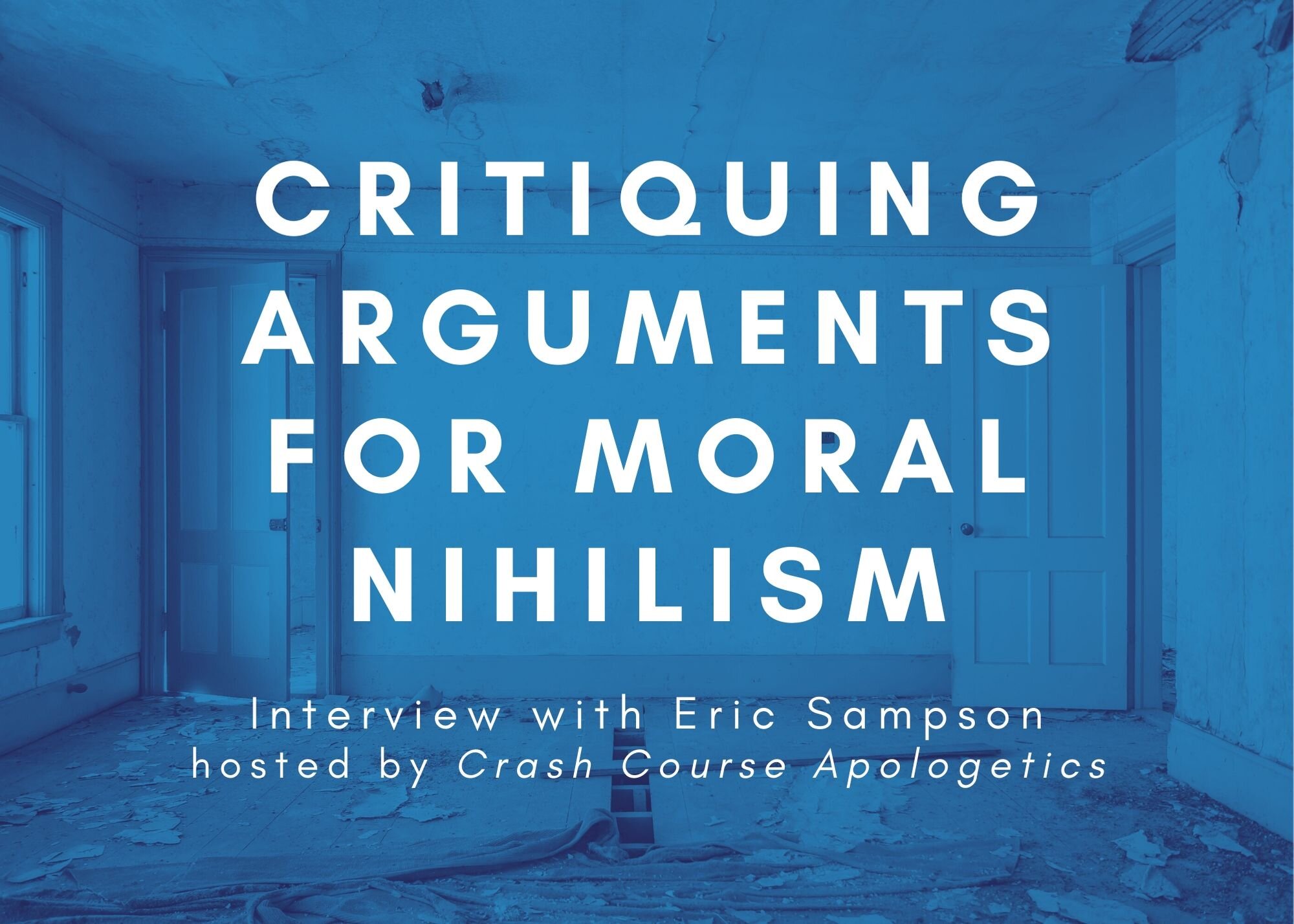Introducing a Thomist Moral Argument
/
Editor’s note:
Here at MoralApologetics.com, we are really excited at younger scholars turning their attention and directing their considerable talents to variations on the moral argument. Moral apologetics can come in lots of stripes and shades, depending on the particular moral phenomena in need of explanation, the methodology involved in argumentation, the alleged tightness of the relationship between evidence and conclusion, and the operative variant of theistic ethic employed. Here Suan Sonna shares some highlights of his ongoing research project in which he proposes a moral argument predicated on natural law. We suspect that Suan’s voice will a prominent one indeed in this discussion for many years to come, and we are delighted to showcase his perspicacious work today.
My moral argument took form while studying Judith Jarvis Thomson’s defense of abortion. As a Thomist, I wanted to tackle her thought experiments and whatever metaethical foundations prevented her from accepting my view. I read her paper “The Right and the Good” and was positively shocked. Thomson appealed to teleology, except she used the words “design functions”, to ground her approach to ethics. Rather than embracing teleological realism, however, she settled for teleological nominalism. I was curious thereafter and wondered if other philosophers were borrowing ideas from the Aristotelian-Thomist (AT) synthesis for their theories. As I began combing through the literature, I noticed a subtle pattern emerge – when moral philosophers contemplated the metaethical commitments of their theories, they all depended upon some idea of teleology, some notion of “fulfillment” as goodness, and deployed concepts that sounded awfully familiar to me as a Thomist – consider Moore’s understanding of the simplicity and indefinability of the good which rubs right into the classical theist conception of God! Over time, I decided to develop a moral argument for God’s existence from these observations.
Here is the argument:
(1) Moral realism is true.
(2) Moral realism requires a foundation that yields (A) objective moral truths, (B) is comprehensive, and (C) is compelling.
(3) Either theistic or nontheistic moral realism is true.
(4) Nontheistic moral realism fails to meet at least one of the three requirements.
(5) Therefore, nontheistic moral realism is necessarily false.
(6) Therefore, theistic moral realism is true.
(7) If theistic moral realism is true, then God exists.
(8) Therefore, God exists.
I divide versions of moral realism into those that imply the existence of God (theistic moral realism) and those that do not (nontheistic moral realism). Nontheistic versions of moral realism simply might have nothing to say about God’s existence or perhaps depend upon foundations incompatible with His existence. And, by “foundation” here I mean the ultimate explanation or grounding of moral facts whether it be our intuitions, some evolutionary norm, reason, or God. Theistic moral realism must say that the foundation of moral facts is God, while nontheistic moral realism need not.
I then present in (2) three overarching standards for testing which of the two moral realisms is true. I maintain that moral realism requires a source that yields objective moral truths, is itself comprehensive and compelling.
By “objectivity” I mean the nature of the foundation or explanans must itself be consistent with the explanandum. It would be strange to get an objective theory of ethics from a purely subjective, mind-dependent foundation.
“Comprehensiveness” means that the foundation in question must tackle the most relevant metaphysical and epistemological questions for a proper account of moral realism. For instance, the foundation should help us understand the nature of normativity, it should yield an account of moral knowledge, and ensure we have reliable faculties for moral comprehension. Here, I narrow the debate down to five fundamental explananda – normativity, semantics, causation, cognition, and ontology.
In other words, the foundation should explain both the nature and origin of normativity. Regarding semantics, it should avoid making the world unintelligible but render its information content accessible to our intellects. Even the causal order itself requires an explanation such that we demystify the connection between facts about the world and our actions, the behavior of objects and persons in our unfolding moral drama. The foundation should not simply take for granted that we have reliable cognitive faculties for moral reasoning but explain the origin and reliability of those faculties. Finally, this foundation should illumine us on who or what counts as a moral subject, what is the good, the bad, the right and the wrong? This is the most demanding requirement of the three. And, I propose it in order to avoid moral realisms that are simply constructed to suit our ends or attempt to avoid the ultimate question. We are seeking the version of moral realism that actually covers the relevant and required explananda.
Of course, we also need a way of discerning which foundation most compellingly explains the explananda. I propose here several standards:
1) Intuitive Fit
2) Empirical Adequacy - “consistency with what we know about the world, including our best scientific knowledge.”1
3) Epistemic Access - “the theory should include some account of how we could come to know its truth.”2
4) Metaphysical Fecundity - “the theory should shed light on a variety of metaphysical issues.”3
5) Unification - “We should not accept a bifurcated, disjunctive account of thought and of knowledge as long as a unified account is possible.”4
6) Simplicity - “A good metaphysical theory should not be in need of ad hoc rescues or endless epicyclic tinkering.”5
The standard of unification staves off the objection that the comprehensiveness standard is too demanding. If there is a unified explanation that can explain all of the explananda and do it well, then that unified theory is to be strongly preferred. In other words, comprehensiveness is not too demanding since it is a burden that can be carried by other approaches and perhaps not the objector’s.
Over the course of my research, I found that the AT synthesis simply bests its competitors. It provides an objective, comprehensive, and compelling foundation of moral realism in the very existence of God.
AT moral realism is founded upon six highly plausible metaphysical theses that simultaneously yield a comprehensive moral theory and proofs of the existence of God. The theses are the principle of sufficient reason (PSR), the causal principle (CP), the principle of proportionate causality (PPC), real essentialism (RE), the convertibility principle (TCP), and the principle of finality (PF).
The PSR means that, “Everything that is the case must have a reason why it is the case. Necessarily, every true or at least every contingent true proposition has an explanation. Every event has a cause.”6 Aside from the PSR being highly intuitive, I think Alexander Pruss and Robert C. Koons have provided powerful reasons for suggesting that its denial simply costs too much, including the intelligibility of the universe itself.7
The CP is inspired by Aristotle’s response to Zeno’s denial of change. Zeno argued that true change requires non-being to produce being, since what was not there before must suddenly emerge. Aristotle unraveled the paradox by proposing the CP: change is the actualization of an object’s potential by an already actual actualizer, meaning that being can be divided into being-in-act and being-in-potency. It also appears that denying the CP eviscerates the intelligibility of the universe and the reality of change.
The PPC simply follows from the PSR and CP, since there is an explanation for why events occur and this explanation must preserve the transaction of being. St. Thomas Aquinas defines the PPC as “effects must be proportionate to their causes and principles”8 so that “whatever perfections exist in the effect must be found in the effective cause.”9 To put it more straightforwardly, “a cause cannot give what it does not first have.”10 Consider for instance how materialists argue that consciousness cannot be immaterial, since our origins are purely material and so too is the fundamental nature of the universe. Like things beget like things.
RE is “... the metaphysical position that everything in the world has an essence or nature that fixes its identity.”11 and “The essence of a thing is its nature, that whereby it is what it is. It is what we grasp intellectually when we identify a thing’s genus and specific difference.”12 Things have a real definition of what they are, which makes possible our distinguishing one kind of thing from another kind. It is not that we are inventing the difference between a mushroom and a human but there really is something different about the two, and this difference is ultimately due to the nature of human beings and other plants. To deny this point seems to place a huge hole in evolutionary theory and the project of speciation, or even the trustworthiness of our perception since it seems to really be the case that humans, horses, and fish are not absolutely the same kind of thing and one can identify their differences.
TCP states, “... goodness is the same as being itself, but considered from a particular point of view - that of fulfillment of appetite.”13 In other words, goodness is the actualization of potential, a kind of fullness. For example, we say that one thing is better than another when said thing is more as it should be. A triangle drawn with a radiograph pen is better than one etched into the seat of a shaky bus. The instantiated triangles are obviously aiming towards triangularity and are hence held to that standard. Likewise, human beings are ordered towards “humanity,” and humans are better when they are more in harmony with and fulfillment of their human nature. The fullness of triangularity is the measure of goodness for a triangle. The fullness of humanity is the measure of goodness for a human.
Finally, the PF sates that “... every nature is ordered to an end; that nature does not act in vain; that the end is the first principle of activity; and that the end is the reason for all movement.”14 and “In short, if A is by nature an efficient cause of B, then generating B must be the final cause of A.”15 Another way of framing this is that nature behaves with intentionality or directedness. For instance, the laws of nature do not describe mere accidental regularities but they reveal the natures of the objects in question and how they act under certain conditions. This activity is intrinsic to the objects themselves, meaning they are acting as they should. For instance, an electron is a negatively charged particle that orbits the nucleus. Such a description gives us the nature and activity of the entity in question – even the “negative” charge label is connected to activity. Or, consider even how horses are tetrapods but some are obviously born with more or less legs than they should have. The nature of the horse provides us the norm and allows us to identify deviations and when things are not as they should be.
Two significant consequences follow from these theses. The first is that a comprehensive moral theory known as classical natural law theory follows. Classical natural law theory states that ethics is the science of how to fulfill one’s nature. Just as scientists discover laws of nature through observing the tendencies of objects and what should happen under normal circumstances, the same sort of study is done on human activity in order to unveil the natural law.
The second consequence is that any properly constructed argument for the existence of God dependent upon any of the theses is given a significant plausibility boost. St. Thomas Aquinas, for example, famously developed six ways to demonstrate the existence of God. The first is known as the argument from motion; the second is the argument from efficient causality; the third is a contingency argument of sorts; the fourth is an argument from the gradation of being; the fifth is a teleological argument; and the sixth is his lesser known De Ente argument.
The PSR makes the first, second, third, and sixth ways eminently plausible. For example, the first way begins with the CP and argues that there must be a purely actual actualizer in order to prevent an infinite causal regress. There must be a causal agent who is the source of all change but is not itself subject to change.
De Ente rightly observes that since beings are composites of essence and existence, meaning a real distinction exists between the two and not merely a logical or conceptual one, there must be an explanation for why they exist despite their essences not securing or entailing their existence. This can be viewed as a more precise contingency argument. St. Thomas located this ultimate explanation in a being whose very essence is existence itself lest there be another endless causal regress. In tandem with TCP, RE, and PPC, we arrive at a being who is essentially perfect and the source of all beings - of their essence and existence included! Since human beings are by nature rational animals, meaning our specific difference from the rest of the animal kingdom is our rationality, our cause must also possess something like an intellect in order for it “contain” and “impart” our intellects to us.
Furthermore, we know that this being has an intellect due to the fifth way, the teleological argument, where St. Thomas noted that even beings without minds are drawn or attracted towards their final ends just like an arrow is directed towards its target by an intellect. The PF and PPC get us a creator who must have something like an intellect or mind in order for its creation to have this feature of intentionality or directedness.
If St. Thomas’ arguments hold, then we arrive at one and in principle only one supreme being who is the essentially omnibenevolent or perfect, omnipotent, omniscient, and omnipresent reality.
This is my longwinded way of saying that nontheistic moral realisms have an incredible challenge to face, since theistic moral realism has a foundation that yields objective moral truths (since moral truths are fixed truths about being which emanate from God), a comprehensive explanation, and one that is indeed compelling. Robert C. Koons has demonstrated in his work Realism Regained how the AT synthesis can yield not only a moral theory but also an exact theory of causation, mind, and metaphysics. Significant work has been done in Neo-Aristotelian Perspectives on Contemporary Science to demonstrate the plausibility of the AT synthesis and its relevance to quantum mechanics, biology, physics, and psychology. Theists have the theory of everything!
My moral argument attempts to leave no stone unturned and forces everyone to examine the foundations of morality. I conclude that God is the best and most comprehensive explanation, while nontheistic moral realism fails to provide what is required for a complete and compelling account of moral realism. Of course, further research needs to be done in order to secure this conclusion, but I think the argument has plausible foundations and deserves more attention.
Koons, Robert C. Realism Regained an Exact Theory of Causation, Teleology, and the Mind. Oxford University Press, 2000, p. 3.
Ibid.
Ibid.
Ibid.
Ibid.
Pruss, Alexander R. The Principle of Sufficient Reason: a Reassessment. Cambridge University Press, 2011, p. 3.
See Pruss’ The Principle of Sufficient Reason and my dialogue with Robert C. Koons here.
Aquinas, Thomas. “Of the Causes of Virtue.” Summa Theologica, translated by Fathers of the English Dominican Province, Coyote Canyon Press, 2018, pg. 391. I-II. Q. 63. Art. 3.
Aquinas, Thomas. “The Perfection of God.” Summa Theologica, translated by Fathers of the English Dominican Province, Coyote Canyon Press, 2018, pg. 34. I. Q. 4. Art. 2.
Feser, Edward. Five Proofs of the Existence of God. Ignatius Press., pg. 170.
See the opening page of Oderberg, S. David Real Essentialism (2007).
Feser, Edward. Scholastic Metaphysics: a Contemporary Introduction. Editiones Scholasticae, 2014, p. 211.
Oderberg, David S. The Metaphysics of Good and Evil. Routledge, 2020, p. 14.
Ibid, p. 28.
Feser, Edward. Scholastic Metaphysics: a Contemporary Introduction. Editiones Scholasticae, 2014, p. 92.


























































